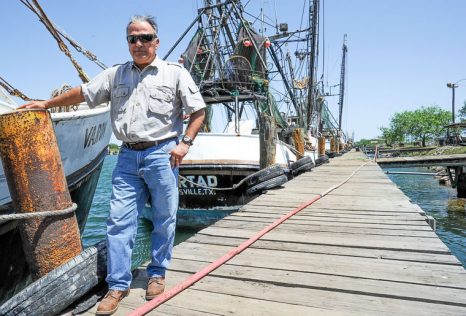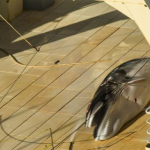Tag Archives: H-2B Returning Worker Program
Shrimpers hoping for relief from foreign worker shortage
 Rio Grande Valley shrimpers, faced with a crippling shortage of foreign workers due to Congress’ failure to renew the H-2B Returning Worker Program, may have a glimmer of hope in the federal spending bill signed into law May 5. The bill contains language authorizing the U.S. Department of Homeland Security to raise the cap on the number of foreign workers with H-2B visas. U.S. companies can hire in fiscal year 2017 from 66,000 (33,000 for each half of the fiscal year) to nearly 130,000. The question is whether Homeland Security will follow through and raise the cap, and how soon. Andrea Hance, executive director of the Texas Shrimp Association, said owners of shrimp fleets and processing plants on the Texas coast are in desperate straits for want of workers, with the Texas shrimp season set to reopen in mid-July, she said. click here to read the story 12:48
Rio Grande Valley shrimpers, faced with a crippling shortage of foreign workers due to Congress’ failure to renew the H-2B Returning Worker Program, may have a glimmer of hope in the federal spending bill signed into law May 5. The bill contains language authorizing the U.S. Department of Homeland Security to raise the cap on the number of foreign workers with H-2B visas. U.S. companies can hire in fiscal year 2017 from 66,000 (33,000 for each half of the fiscal year) to nearly 130,000. The question is whether Homeland Security will follow through and raise the cap, and how soon. Andrea Hance, executive director of the Texas Shrimp Association, said owners of shrimp fleets and processing plants on the Texas coast are in desperate straits for want of workers, with the Texas shrimp season set to reopen in mid-July, she said. click here to read the story 12:48

Shrimper shortage: Lack of foreign workers puts Texas shrimp industry in bind
The Texas shrimp industry, struggling for years against high fuel prices and cheap foreign imports, faces a new crisis: a major shortage of the temporary foreign workers that boat owners and processing plants depend on to operate. The shortage is the result of Congress not renewing the H-2B Returning Worker Program when it expired at the end of September. Congress created the exemption in 2015 to help industries like seafood, landscaping and hospitality fill essential jobs.The exemption was established after the government in 2005 instituted an annual cap of 66,000 H-2B foreign worker visas, in response to a surge in H-2B applications from employers since the program started during the late 1980s. The cap is divided equally among the two halves of the fiscal year — 33,000 the first half and 33,000 the last. As part of the H-2B application process, the government requires employers first to advertise the jobs to U.S. workers. In the case of the shrimp industry, however, it’s very difficult to find U.S. workers willing to do the work. The Rio Grande Valley’s shrimp industry increasingly has had to rely on shrimp boat workers from Mexico, who tend to have experience and in some cases have worked on the same U.S. boats for two decades or more. continue reading the story here 15:12











































